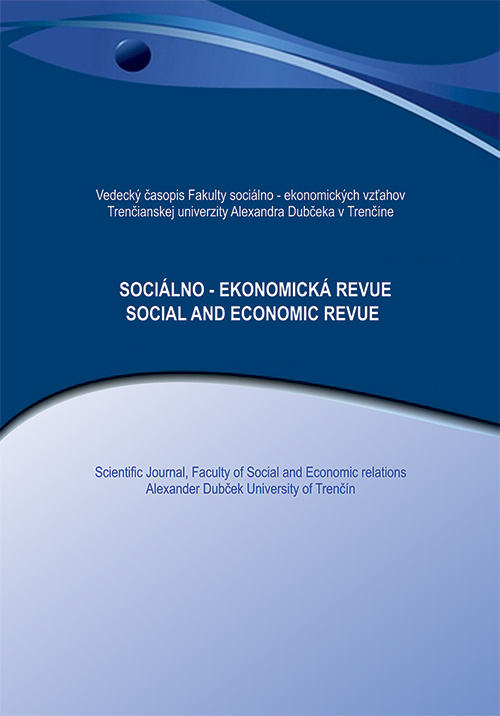FATIGUE AS A CONSEQUENCE OF SHIFT WORK AND EXHAUSTION
Shift work with rotating night shifts negatively impacts human rhythms and might increase probability of developing multiple diseases. This form of working schedule can contribute to obesity, diabetes, and development of cardiovascular diseases, sleep deprivation and insomnia. Common secondary effect is fatigue and its various forms. This article offers a quantitative study comparing the level of fatigue among shift and fixed schedule working conditions. The degree of fatigue is classified in the scope of chosen characteristics: frequency, intensity, symptoms and it’s daily occurrence. The sample is composed of 57 workers participating in shift work and 57 having a fixed working schedule. Subjective interpretation was applied on analysing the questionnaires for identification of the degree of fatigue coefficient. The research findings are in accordance with previous studies and confirm shift work as a risk factor for physiological wellbeing of employees.
Release: 2018/4 Pages: 118-122 JEL classification: I15, M54, M55
DOI:
Keywords: Shift work, fatigue, degree of fatigue, fatigue symptoms, the development of a fatigue /risk index for shift workers
Section: PSYCHOLOGY OF MANAGEMENT
Contacts:
PhDr. Eva Živčicová, PhD.
Department of Social and Human Science,
Alexander Dubček University of Trenčín,
Trenčín, Slovakia
e-mail: eva.zivcicova@tnuni.sk
Literature:
Ďurič, L., Bratská, M. (1997). Pedagogická psychológia : terminologický a výkladový slovník. Bratislava: SPN, 1997. 463 p.
Eurofound (2012). Fifth European Working Conditions Survey, Publications Office of the European Union, Luxembourg.
Halvani GH., Zare M., Mirmohammadi SJ. (2009). The relation between shift work, sleepiness, fatigue, and accidents in Iranian industrial mining group workers. Industrial Health, 47, 134–138
Hossain, J. L., Reinish, L. W., Kayumov, L., Bhuiya, P., Shapiro, C. M. ( 2003). Underlying sleep pathology may cause chronic high fatigue in shift-workers. J. Sleep Res, 12, pp. 223–230.
Jansen, NWH, van Amelsvoort JGP, Kristensen, TS, van den Brandt, PA,Kant, IJ. (2003). Work schedules and fatigue: a prospective cohort study. Occup Environ Med; 60. pp. i47-i53. doi:10.1136/oem.60.suppl_1.i47
Pigeon, W. R., Sateia, M. J., Ferguson, R. J. (2003). Distinguishing between excessive daytime sleepiness and fatigue: toward improved detection and treatment. J. Psychosom. Res, 54: 61–69.
Saremi M. , Khani Jazani R. , Tassi P. (2008). Comparison of fatigue level, sleep quality and quantity in old and young shift workers. Research in Medicine, 32 (2), pp. 135-139.
Szarková, M. (2016). Psychológia pre manažérov. Bratislava: Wolters Kluwer. 2016. 260 p.
Tvaryanas, Anthony P., Thompson, William T. (2006). Fatigue in Military Aviation Shift Workers: Survey Results for Selected Occupational Groups. Aviation, Space, and Environmental Medicine, vol. 77, pp. 1166-1170(5)


